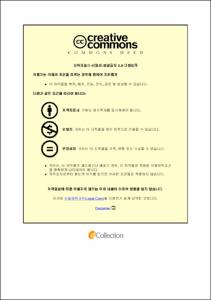육아휴직 후 복귀 간호사의 양육스트레스에 대한 직무스트레스 및 사회적지지의 영향
- Issued Date
- 2018-08
- Abstract
- This study aimed to identify the effect of job stress and social support on parenting stress in nurses returning after parental leave. The subjects were 135 nurses returning after parental leave at 6 general hospitals with 300 bed or more in a metropolitan area. Three kinds of questionnaires were used to measure parenting stress, job stress, and social support. Data were analyzed with SPSS/WIN version 22, using descriptive statistics, t-test, ANOVA, Pearson’s correlation, and hierarchical regression analysis. Data were collected from December 1, 2017, to February 15, 2018. The results of the study were as follows: 1. In the subjects, the mean score for parenting stress was 2.34±0.46, for job stress 3.82±0.59, family support 4.23±0.56 and for peer support 3.42±0.62. 2. The subjects' parenting stress showed a significant difference according to the reason for return after parental leave (F=5.81, p=.004). The job stress showed significant differences according to age (F=3.99, p=.021), the reason for return after parental leave (F=3.15, p=.046), and subjective health state (F=4.81, p=.004). The family support showed significant differences according to the reason for return after parental leave (F=4.64, p=.011) and main caregiver (F=2.64, p=.037). The peer support showed significant differences according to the reason for return after parental leave (F=5.20, p=.007), experience in the current working department (F=3.63, p=.029), and return period (F=2.96, p=.035). 3. In the subjects, parenting stress and job stress had a positive correlation (r=.28, p<.001), parenting stress had negative correlations to family support (r=-.35, p<.001) and peer support (r=-.45, p<.001). Job stress and peer support had a negative correlation (r=-.22, p<.012). 4. The factors influencing parenting stress were family support (β=.29, p<.001), job stress (β=.22, p=.005), and peer support (β=-.19, p=.026) in order of significance. Their total effect for parenting stress was 27%. Based on the above results, it can be concluded that job stress, family support, and peer support have significant effects on parenting stress. The results of this study provide information that can be used to develop programs for reducing parenting stress and job stress.
본 연구는 육아휴직 후 복귀 간호사를 대상으로 양육스트레스에 대한 직무스트레스 및 사회적지지의 영향을 규명하기 위한 서술적 조사연구이다. 자료수집은 일개 광역시에 소재하는 300병상 이상의 6개 병원에서 근무하는 육아휴직 후 복귀 간호사 135명을 대상으로 하였다. 연구도구는 양육스트레스, 직무스트레스, 사회적지지 측정도구를 이용한 설문지 문항으로 구성되었다. 설문지는 2017년 12월 1일부터 2018년 2월 15일까지 수집하였다. 수집된 자료는 SPSS/WIN version 22 통계프로그램을 이용하였고, 빈도와 백분율, 평균과 표준편차, t-test, ANOVA, Pearson’s Correlation 및 위계적 회귀분석으로 실시하였다. 연구결과를 요약하면 다음과 같다. 1. 대상자의 양육스트레스는 평균평점 2.34±0.46점, 직무스트레스는 평균평점은 3.82±0.59점이었고, 가족지지는 평균평점 4.23±0.56점, 동료지지는 3.42±0.62점으로 나타났다. 2. 대상자의 일반적 특성에 따른 양육스트레스는 육아휴직 후 복귀이유(F=5.81, p=.004)에서 유의한 차이가 있었고, 직무스트레스는 연령(F=3.99, p=.021), 육아휴직 후 복귀이유(F=3.15, p=.046), 주관적 건강상태(F=4.81, p=.004)에 따라 유의한 차이가 있었다. 가족지지는 육아휴직 후 복귀이유(F=4.64, p=.011), 주 양육자(F=2.64, p=.037)에 따라 유의한 차이가 있었다. 동료지지는 육아휴직 후 복귀이유(F=5.20, p=.007), 현 부서 경력(F=3.63, p=.029), 복직 기간(F=2.96, p=.035)에 따라 유의한 차이가 있었다. 3. 대상자의 양육스트레스와 직무스트레스 및 사회적지지의 상관관계에서 양육스트레스와 직무스트레스(r=.28, p<.001)는 유의한 양의 관계가 있었고, 양육스트레스는 가족지지(r=-.35, p<.001), 동료지지(r=-.45, p<.001)와 음의 상관관계 있었다. 직무스트레스는 동료지지(r=-.22, p=.012)와 음의 상관관계가 있었다. 4. 대상자의 양육스트레스는 가족지지(β=.29, p<.001), 직무스트레스(β=.22, p=.005), 동료지지(β=-.19, p=.026)의 순으로 유의한 영향요인으로 나타났고, 양육스트레스에 대한 전체 설명력은 27%였다. 이상의 연구결과를 종합해 볼 때 직무스트레스, 가족지지 및 동료지지가 양육스트레스에 유의한 영향을 미치는 것으로 나타났다. 따라서 본 연구결과를 토대로 양육스트레스와 직무스트레스의 감소를 위한 중재 프로그램의 개발에 기초 자료를 제공하고자 한다.
- Alternative Title
- Effect of Job Stress and Social Support on Parenting Stress in Nurses Returning After Parental Leave
- Awarded Date
- 2018-08
- Degree
- 석사
- Citation
- 최정화. (201808). 육아휴직 후 복귀 간호사의 양육스트레스에 대한 직무스트레스 및 사회적지지의 영향.
- Type
- Thesis
- Source
- http://www.dcollection.net/handler/kmu/000000117345
- Appears in Collections:
- 2. College of Nursing (간호대학) > 석사
- 파일 목록
-
-
Download
 THESIS-Nursing-2018-084.pdf
기타 데이터 / 954.62 kB / Adobe PDF
THESIS-Nursing-2018-084.pdf
기타 데이터 / 954.62 kB / Adobe PDF
-
Items in Repository are protected by copyright, with all rights reserved, unless otherwise indicated.